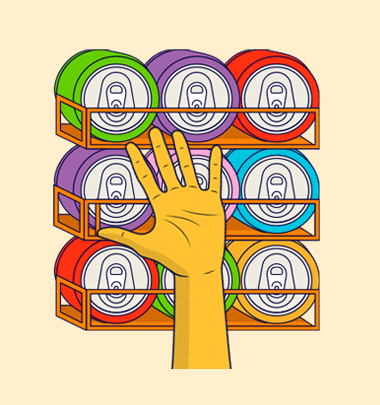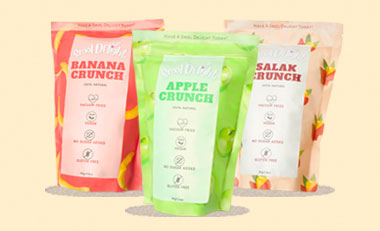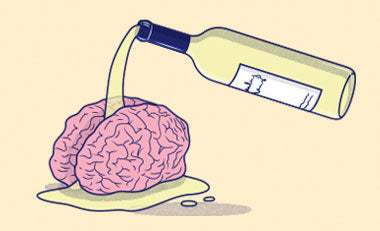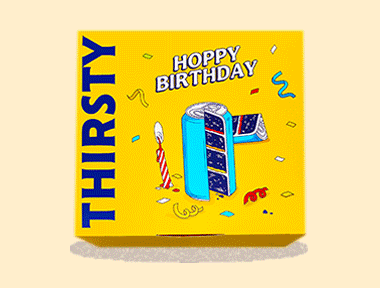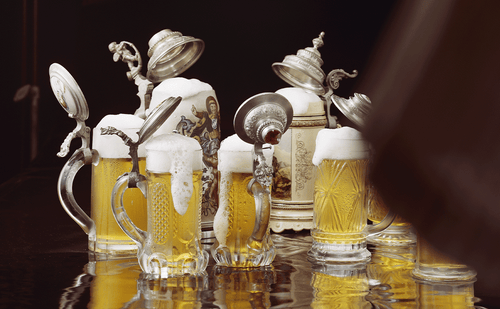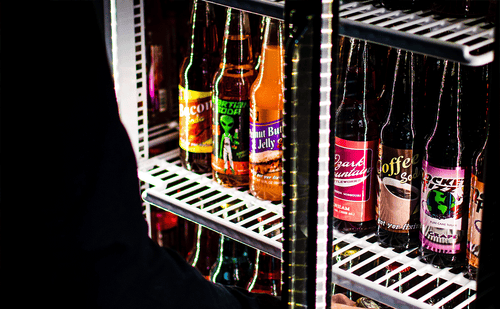Cans vs bottles: which is better for craft beers?
 Image credit: @samueladamsbeer
Image credit: @samueladamsbeer
Canned beer has had a bad rep for a while among beer lovers, but do you know why? Back then, untreated tin was used to package canned beers, which messed with the flavours of the beers. The pungent metallic taste of the cans ruined the experience for many beer lovers, which is why many of us tend to shy away from canned beers.
Obviously things are different now, as aluminium cans are lined with water-based polymers that prevent nasty flavours from seeping into the beers.
Taste test!
But wait! Don’t beers taste better from bottles? This is actually a myth that probably originated from the trauma of the nasty untreated tin cans back in the days… There is actually no evidence that proves that the taste of the beer changes according to how it is packaged.
Still haunted by a stanky metallic taste? Well, it could really just be your nose that is picking up on the metallic scent of the can. Luckily for you, this problem can easily be solved by pouring your canned beer into a glass, and voila! The metallic taste, or rather, smell, should be gone.

Image credit: Shalitha Dissanayaka
If, however, you are still certain there is a metallic taste from your canned beer, beer in mind that it could simply be because of low quality grain that was used in brewing the beer. Otherwise, it could be because the grain that was used was not stored properly, thus it absorbed strange odours around it.
Cans, cans, cans
You may be biased towards bottles but the truth is, cans are better for your beers. Cans offer the best protection against the inevitable decay of flavours in your beer. Nothing lasts forever, including your beers, unfortunately.
Sunlight, air, and high temperatures. These are your beers’ mortal enemies and should be kept away from your precious beer babies at all costs.
 Image credit: CHUTTERSNAP
Image credit: CHUTTERSNAP
Firstly, UV rays from the sun are not only cancer causing for us humans, but will also skunk your beer. While it is still safe to drink, we would recommend against it as it will definitely smell nasty and taste gross (unless that’s what you’re into; this is a safe space!)
Secondly, exposure to air will cause your beer to oxidise which will make your beer taste like cardboard (again, if that’s your beer kink, we won’t judge you). Lastly, colder temperatures will slow down biochemical processes, which means that the taste of your beer will deteriorate slower.

Image credit: @cbco_
Fortunately for you, aluminium cans can block out all the light, unlike bottles. In addition, cans have a better airtight seal than bottles, and also cool faster than glass.
Tldr; cans are without a doubt the best packaging for your craft beers.
Reduce, reuse, and recycle
Done with your can of beer? Don’t just throw it out, recycle it! The wonders of aluminium include its ability to be recycled indefinitely, which is really good for the environment. Due to its low density, and thus, low weight, aluminium has a smaller carbon footprint.
 Image credit: cbco_
Image credit: cbco_
Also, because of its light weight, as compared to heavy glass bottles, it is much easier to carry around if, for example, you are lugging beers to a picnic. Plus, with cans, they are definitely much easier to open, unless you just had a pedicure and don’t want to ruin your $70 nails.
Cans vs bottles: the winner is cans!
 Image credit: gageroadsbrewco
Image credit: gageroadsbrewco
Cans are definitely the superior packaging for craft beers, but we aren’t saying that bottled beers are bad. In fact, bottles still have a prime place in several places, such as Belgium, where bottled beers are the norm. With bottle-conditioned ales, one can witness the fermentation progress in its full glory.

Image credit: @konabrewingco
Certain ales age really well in bottles, but if you’re planning to age your beer-verage, avoid ales in green or colour-free bottles as they are not light resistant. Just remember, brown bottles are your best beer-ageing incubators!
The heated debate between bottle and can fanatics doesn’t actually matter. After all, the craft beer community is an inclusive one; no one will shame you for having a packaging preference. At the end of the day, the best beer out there is the one in your hand.

